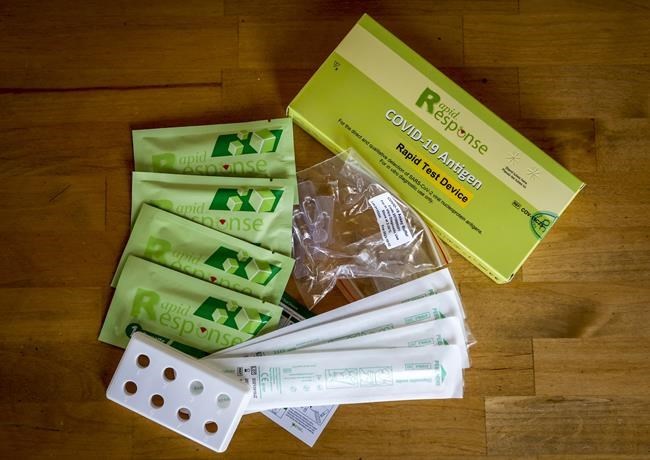OTTAWA ŌĆö The federal government introduced legislation on Monday to continue providing as many rapid tests as possible to the provinces and territories.
Health Minister Jean-Yves Duclos introduced the bill in the House of Commons on MPs' first day back after a six-week break.
The bill would give Health sa╣·╝╩┤½├Į the authority to purchase and distribute across the country up to $2.5 billion worth of COVID-19 rapid tests, according to a statement from the department.
Marie-France Proulx, press secretary for Duclos, said in a statement Monday that this amount would be in addition to the $1.7 billion pledged in the government's fall economic and fiscal update. Proulx said both amounts are specifically set aside for rapid tests.┬Ā
"As COVID-19 remains a global threat, driven by the highly transmissible Omicron variant, the demand for rapid tests has increased worldwide," said Duclos in the statement, adding that rapid tests are an important part of the government's strategy for keeping Canadians safe.
Liberal House leader Mark Holland said at a news conference Monday that Bill C-10 would accelerate the funding and provision of rapid tests.
He said the rapid testing portion of Bill C-8, which was created to carry out aspects of the fall economic and fiscal update, was separated and is being submitted separately through Bill C-10 to ensure it can be passed more quickly.
"This is to take from the fiscal and economic update the provisions to provide rapid tests and accelerate them because their need is great, and we need to make sure that they're present," said Holland.
Holland called on opposition parties to help the government in getting the bill adopted as quickly as possible.
This report by The Canadian Press was first published Jan. 31, 2022.
ŌĆöŌČ─öŌČ─ö
This story was produced with the financial assistance of the Facebook and Canadian Press News Fellowship.
Erika Ibrahim, The Canadian Press



